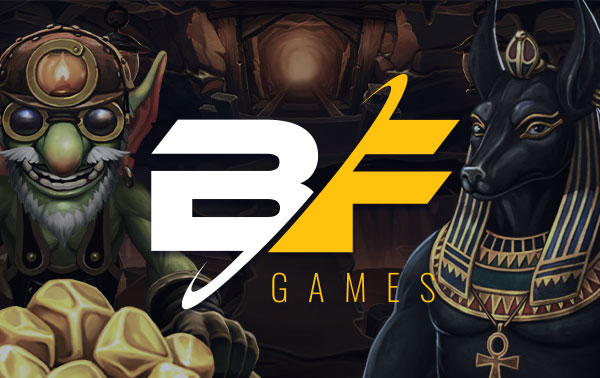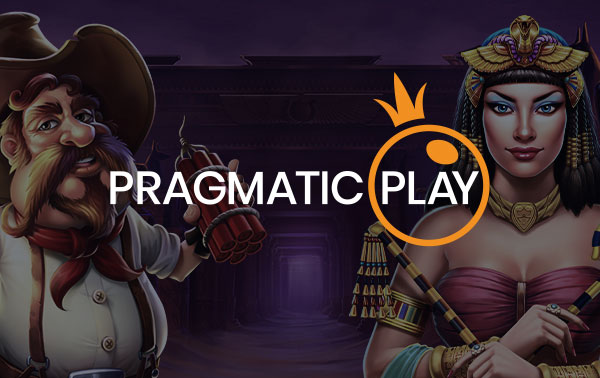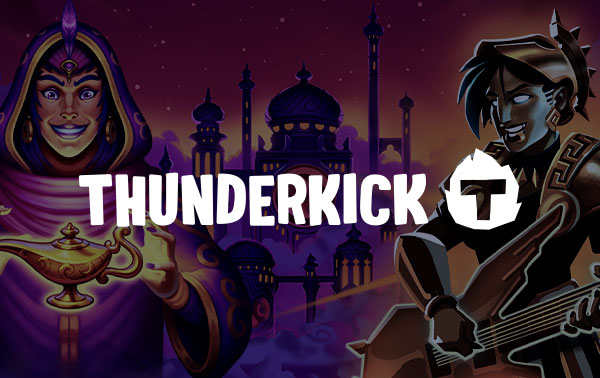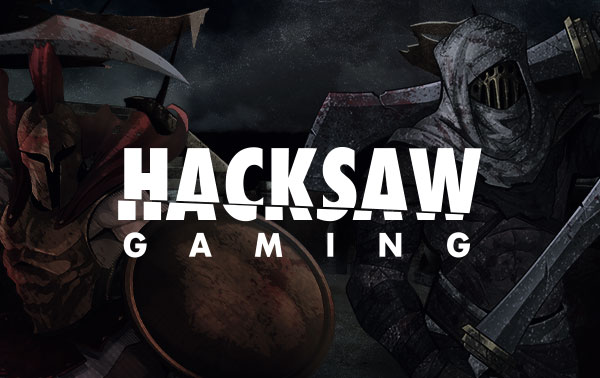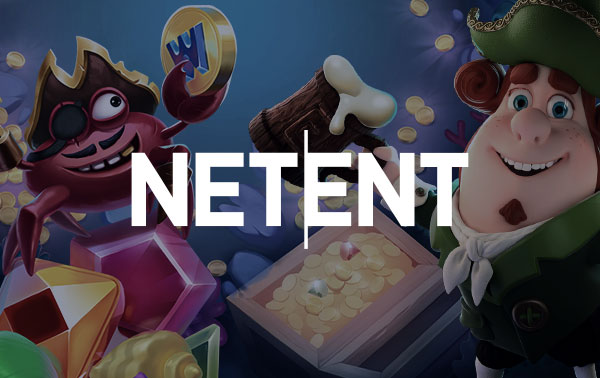Games Browser
- casino
- table-games
- Poker
Online Poker
Online Poker is one of the few card games that earned recognition as not only a casino game but also a sport. Poker is played not only for entertainment, it can also be highly competitive and requires mental prowess to find the right strategy and stay on top of the game. Unfortunately, brick-and-mortar poker tables may seem intimidating and uninviting to novice players. That’s where online poker comes in! At EnergyCasino players can enjoy several variants of poker, including Live Poker, without the stresses of a real table setting.
Poker is a game of chance and wit, so before taking a seat at one of the tables, players should have a solid grasp of the rules. Knowing the ins and outs of the game may help players in making quick, informed, and strategic decisions. Let’s take a look at the history of poker, its variants, and the core gameplay mechanics.
HISTORY OF ONLINE POKER
Poker, as we know it today, originated in the United States. Although this modern link is very apparent, historians believe that the game’s roots can be traced to the 16th-century Persian card game of As Nas, or perhaps even further back to a domino-card game played by a 10th-century Chinese emperor. In Europe, Poker’s closest predecessor was the French game of poque. This popular three-card game, where players wagered and bluffed just as they do today, was quite prominent in France, Germany (pochen), and Spain (primera) during the 16th and 17th centuries.
It is believed that poque made its way across the ocean to North America with the arrival of French colonists to their Louisiana settlements. The name was quickly anglicized to poker, and by 1834 the game adapted many of its current features like five-card play and using a deck of 52 cards. From there, poker spread across North America like wildfire. The game became widely popular in saloons, soldier camps, and boating crews. Its prominence didn’t stagger there, poker was a form of entertainment that attracted men and women from all walks of life, becoming a staple of social gatherings, including the courts of Great Britain’s Queen Victoria.
World Series of Poker
The first poker tournament – World Series of Poker – was held in 1970. The competition remains the leading annual event, where players compete for multi-million prize pools. Like bridge, poke is considered to be a highly-competitive sport. Players like Bobby Baldwin, Puggy Pearson, Amarillo Slim, and Doyle Brunson cement their legacy as some of the most talented players of the game.
When casino games stormed the internet, online poker quickly conquered the hearts of fans far and wide. The game suddenly became accessible to anyone with internet access, featuring detailed gameplay instruction menus and low-stake bets that allow novice players to try out poker for the first time. The game and many of its variants perfectly adapt to an online setting, let’s take a look!
ONLINE POKER Games
Over the years, players have appropriated new styles of play, influencing the development of poker’s many modern variants. There are three main classifications of the game: stud, draw, and community card poker. While many named variants exist, almost all of them fall into one of these three categories. In draw poker, the player’s dealt hand is concealed from their opponents, allowing players to improve their hand via card replacement. Some examples of draw poker games are Five Card Draw, Badugi, and Five Card Double Draw.
Stud poker reveals a part of the player’s hand to their opponents, providing an insight into what you’re playing against. Common stud poker games are the Seven Card Stud and Follow the Queen. Community poker houses the game’s most popular variants like Omaha and Texas Hold’em. In this variant, players use community, or shared, cards together with their concealed cards to augment their hand. Community cards remain visible to all players.
Poker Straight, Omaha Poker, 7-Card Stud or 5-Card Draw are only some of the variations of poker. Texas Hold’em trumps them all! It is one of the most straightforward games of poker, beloved by new and expert players alike. Texas Hold’em is a staple at any casino, be it online or brick-and-mortar. At EnergyCasino, you’ll find plenty of Hold’em tables, as well as other popular variants like American Poker.
POKER HAND RANKINGS
No matter what type of play you’re looking for, the winning card combinations in poker remain uniform across all variants. Keeping track of possible outcomes and understanding the potential of your hand can be key in turning the tides of the game. The following hands are distinguished in poker, in order from the highest rank to the lowest:
-
Royal Flush – 10, J, Q, K, and A of the same suit, the best possible hand in the game. Probability of hitting this hand is 1:649,740.
-
Five of a Kind – a hand that contains five cards of one kind, such as all threes. This hand is only possible when using a Wild card, since the deck has only four cards of each rank.
-
Straight Flush – a sequence of five cards of any value and of the same suit. For example,
-
Q♣, J♣, 10♣, 9♣, and 8♣ is a Straight Flush. The Ace can rank low in this case and can form a Straight Flush such as K♦, A♦, 2♦, 3♦, and 4♦.
-
Four of a Kind – a hand of four cards of the same value, also known as a “quad”. A hand like K♥, K♣, K♠, K♦, and 3♠ would count as Four of a Kind.
-
Full House – also known as “full boat”, is a hand with three cards of one rank and two of another, like 5♥, 5♣, 5♠, and 7♥, 7♦.
-
Flush – a hand of five cards of the same suit, and does not have to be in sequential order. For example, K♥, J♥, 8♥, 6♥, and 3♥ is a Flush. A Flush is ranked from its highest-ranking card to the lowest.
-
Straight – a hand of five cards in sequential rank, which do not have to be of the same suit.
-
Three of a Kind – three cards of the same rank and two cards of any other rank (“kickers”). Three of a Kind can also be referred to as “trips” or “set”.
-
Two Pairs – a hand with two cards of one rank, two cards of another, and one kicker. Each Two Pairs hand is ranked by its highest-ranking pair, then second. The kicker also plays a role in the ranking.
-
One Pair – a hand with a single pair of two cards of the same rank and three kickers. Each pair is ranked first by the rank of the pair, then by the highest-ranking kicker and on to the lowest.
-
High Card – also known as “no pair”, this hand is one that does not fall into any of the above combinations, like K♥, J♣, 8♦, 4♠, 2♥. Each High Card hand is ranked first by its highest-ranking card, then second, and so on.
In a situation when two players have the same hands, the winner is determined by the hand with the highest-ranking card. If determining a winner this way is not possible, a tie is called and the pot is divided between both players. These card combinations will always come in handy, whether it is to help a player understand the basic principles of play or to aid more advanced bettors in keeping tabs on the deck and their opponents.
Poker TEXAS HOLD’EM
Texas Hold’em is, by far, the most popular poker variant at EnergyCasino. The origins of this game can be traced back to Robstown, Texas in the early 1900s. The game made its first appearance in the casinos of Las Vegas in 1963 and quickly soared to the peak of popularity.
In this variant of poker, there are four rounds of betting (similarly to Five Card Draw). This variant is particularly attractive to professional players because it allows for strategic play, allowing them to influence the pot based on their hand or the predictions of what the opponents may be holding. With the rise of the internet, Texas Hold’em triumphed over any other variant of poker. Anyone could tune in and watch professional players make their plays and less experienced players could learn the rules of play without a financial commitment. To this day, Texas Hold’em tables remain the most frequently visited at EnergyCasino and worldwide.
Poker betting rules
Players should know not only the rankings of hands in poker but also the structure of betting. In any betting round of poker, a player can open action by making a bet. The value of the bet is at the discretion of the player, but starting with lower stakes is advisable for newer players. As the game progresses, it is common to raise 50 to 100% of the pot, however, there is an art to betting: raising too high or too low are common rookie mistakes. The former may inform your opponents that you have a weak hand, whereas the latter will give you no profit. Since in online poker players can enjoy single-player tables and DEMO play, betting can be a lot more flexible and easy to understand.
The value of the bet is often displayed with a set of clickable chips, which players can place on the ANTE field on the table. Players can adjust the wager with repeated clicks, or clear the ante by using the X chip. This will reset the wager to zero, allowing the player to make the necessary changes. When the betting phase ends, a series of cards will be drawn and the players will have the option to CALL or FOLD. To call means to match the highest bet so far, and folding will drop the player out of the hand and any bets already made will be forfeited. If a player folds out of a hand, they will no longer have any claim to the pot and will not be making any additional wagers for that hand. Another important term is raising a bet, which is not available in single-player variants, meaning that a player increased the size of an existing bet during the same betting round.
How to play poker?
Before diving in and grabbing a seat at one of the many poker tables at EnergyCasino, players should have a solid understanding of the game’s rules, strategies, and winning conditions. We highly recommend trying out the game through one of the DEMO versions. Depending on your jurisdiction, you may be asked to register and complete the verification process to access the DEMOs. In cases where verification is not necessary, you may be able to play as a visitor.
Playing a DEMO is a great way to learn the bells and whistles of this fantastic card game, and it may aid players in making calculated decisions during real play.
FAQ
ONLINE POKER TERMINOLOGY
Any game or sport comes with a set of terms and expressions that may not always make sense to novice players. Whether you’re looking to explore online poker or have a better understanding of poker play in land-based casinos, we’ve compiled a list of the most commonly used phrases for your convenience.
Action – the dealer may say “Your action” to signify that a player is due to complete their turn. There is an unspoken etiquette to poker – it’s important to keep the gameplay fluid and in a timely fashion. In other contexts, “action” may refer to any bets or raises.
All-in – when a player bets all of their chips in the current hand. It is also possible to make a separate pot, the so-called side pot. Online poker typically has limits set on the pot, so all-ins are not a possibility.
Ante – at the beginning of a poker hand, before the cards are dealt, players put an equal amount of money/chips into the pot.
Backdoor – refers to a situation when a player catches both the turn and river card to make a drawing hand. When a hand was drawn by hitting two consecutive cards on the turn and river is called a Runner.
Bad beat - when the underdog hand triumphs over a heavily favoured hand. A bad beat implies that the winning hand is sheer luck.
Bankroll - the amount of money that a player has to wager for the duration of their poker career or more precisely the sum of their chips. Your wager depends on your bankroll.
Big Blind - typically used in Hold’em games, the big blind is the full sum of the first round’s total bet. In some tournaments, there may be a condition stipulating that blinds increase with time.
Big stack - a person who sits at a gaming table with the maximum buy-in. It is usually the equivalent of 100 Big Blinds.
Big stack bully - a player who has the biggest stack at the table and plays high stakes in order to intimidate their opponent(s).
Blank - a card on the board that does not affect the standings of the hand.
Blind - a forced bet placed by one or more players before the cards are dealt.
Bluff - a bet made with a hand that is mathematically unlikely to be the best hand, either to make money or to disguise play patterns.
Board - the set of shared cards in community poker games.
Broadway - an ace-high straight, such as A♣, K♣, Q♦, J♠, and 10♠.
Button - most commonly a marker that indicates the dealer position at the table, but other specialized buttons exist.
Buy-in - the minimum required amount of chips that must be bought opt into a game or tournament. In the case of tournaments, it is a fixed amount, while casinos typically use a % of the admission fee.
Call - to call is to match a bet or raise.
Calling station - a player who frequently calls bets, but rarely raises them. A calling station is usually a passive player.
Check - if no one has yet opened the betting round, a player may pass or check, which is equivalent to betting zero and/or to calling the current bet of zero. When checking, a player declines to make a bet.
Check-Raise - an easy way to increase the pot and eliminate players from a round: a player deceptively checks intending for someone else to open. The player who checked will then raise in the same round.
Coinflip - a situation where two players have invested all their money in the pot and have a roughly even chance of winning.
Combo Draw - when cards are simultaneously drawn to several different hands.
Community Cards - cards dealt, face-up, in the centre of the table and shared by all players.
Connectors - two or more cards of consecutive or close to consecutive rank.
Crying Call - calling when a player is sure that the opponent has a much better hand.
Cut Off - the seat immediately to the right of the dealer button.
Dominated Hand - when two players hold a card of the same rank, the player with the better kicker is said to dominate their opponent.
Draw - a poker player is drawing if they have a hand that is incomplete and needs additional cards. The expression “drawing dead” means drawing to get a hand which has already been beaten.
Early Position - refers to your seat at a poker table. Players who act first are in "early position”.
Flop - the dealing of the first three face-up cards to the board, may also refer to the three cards themselves.
Fold - to discard one's hand and forfeit interest in the current pot.
Freeroll - a free-to-enter poker tournament for new players with no buy-in OR a hand in which a player can either split the pot or win.
Freeze-out - the most common form of tournament. There are no rebuys and play continues until one player has all the chips.
Full Ring - a full ring game is a cash game with more than six players involved, typically nine to eleven.
Good Fold (GF) - refers to a good fold.
Good Game (GG) - an expression used to thank other players for a great game.
Gutshot - a hand with an unfinished straight, with only one missing to complete it.
Heads-Up - playing against a single opponent.
Isolate - an isolation play is usually a raise designed to encourage one or more players to fold, to make the hand a one-on-one contest with a specific opponent.
Kicker - a card in a poker hand that does not itself take part in determining the rank of the hand, but that may be used to break ties between hands of the same rank.
Late Position - refers to the two players who are the dealer (button) and the cut-off (the person sitting to the right of the button).
Leak - an error in the playstyle of a player, which may result in consecutive losses.
Limp - to enter a pot by simply calling a bet instead of raising.
Loose - refers to a style of play.
Maniac - a very loose and aggressive player, who bets and raises frequently, and often in situations where it is not a good strategy to do so.
Middle Position - refers to the table seats between early and late positions.
Monster - refers to an extremely strong card which cannot be beaten in a given round.
Muck - the discard pile.
Nice Hand (NH) - a good hand.
Nuts - the nut hand is the best possible hand in a given situation.
Open Ended Straight Draw (OESD) - is a draw to a straight that is missing either the first or last card of the sequence.
Out - any unseen card that, if drawn, will improve a player's hand to one that is more likely to win.
Overbet - to make a bet that is more than the size of the pot in a no-limit game.
Overcard - a community card with a higher rank than a player's pocket pair.
Overpair - a pocket pair with a higher rank than the highest community card.
Passive - a style of play characterized by checking and calling.
Pocket Cards - face-down cards received by the player, from the dealer, at the beginning of play.
Pot Limit (PL) - in a pot-limit game, no player can raise more than the size of the total pot.
Pre Flop - the time when players already have their pocket cards but a flop has not been dealt.
Rags - low-valued (and presumably somewhat worthless) cards.
Rainbow - three or four cards of different suits, often used to describe a flop.
Re-raise - to raise after the bet has already been raised.
Rebuy - a number of chips purchased after the buy-in.
River - the fifth and last card to be dealt on the community board, after the flop and turn.
Satellite - a tournament in which the prize is a free entrance to another (typically larger) tournament.
Short stack - a stack of chips that is relatively small for the stakes being played.
Showdown - when, if more than one player remains after the last betting round, the players expose and compare their hands to determine the winner or winners.
Sit and Go (S&G or S’n’G) - a poker tournament with no scheduled starting time that starts whenever there are enough players seated.
Sit Out - a break in play. Sitting out often refers to folding every hand.
Short-Handed (SH) - a poker game that is played with six players or fewer, as opposed to a full ring game, which is usually nine or ten players.
Slow Play - a deceptive play in poker where a player bets weakly or passively with a strong hand. It is the opposite of fast playing. The objective of slow play is to lure opponents into a pot who might fold to a raise or to cause them to bet more strongly than they would if the player had played aggressively.
Small Blind (SB) - amount posted by the player sitting on the dealer’s left.
Suited - having two cards of the same suit.
Suited Connectors (sc) - pocket cards that are suited and sequential.
Stack - the total chips and currency that a player has in a play at a given moment
Steal - is a type of a bluff, a raise during the first betting round made with an inferior hand and meant to make other players fold superior hands.
Straight Draw - drawing cards to get a straight.
Tell - a tell in poker is a detectable change in a player's behaviour or demeanour that gives clues to that player's assessment of their hand.
Tight - tight players play relatively fewer hands and tend not to continue playing with weaker hands, hence, they often fold.
Tilt - emotional upset, mental confusion, or frustration in which a player adopts a less than optimal strategy, usually resulting in poor play.
Top Pair Top Kicker (TPTK) - a highest-ranking pair with the highest-ranking kicker. For example, a board of J♥ 8♠ 7♣ K♠ 4♠ and a player’s holding of A♥ K♣ would be a TPTK.
Turn - is the name for the third betting round in community poker games like Texas Hold’em and Omaha.
Ty - an abbreviation for thank you.
Under The Gun - the playing position to the left of the blinds. The player who is under the gun must act first on the first round of betting.
Underdog - a player with a smaller chance to win than other players.
Value Bet - a bet made by a player evaluates an opponent’s highest possible stake, given that the player who is making the value bet assumes that their hand is stronger.
Wheel - a wheel is the lowest-ranking straight of A, 2, 3, 4, and 5, regardless of the suit. It is also referred to as a five-high straight.
Well Played (WP) - a compliment often exchanged after a good move.
